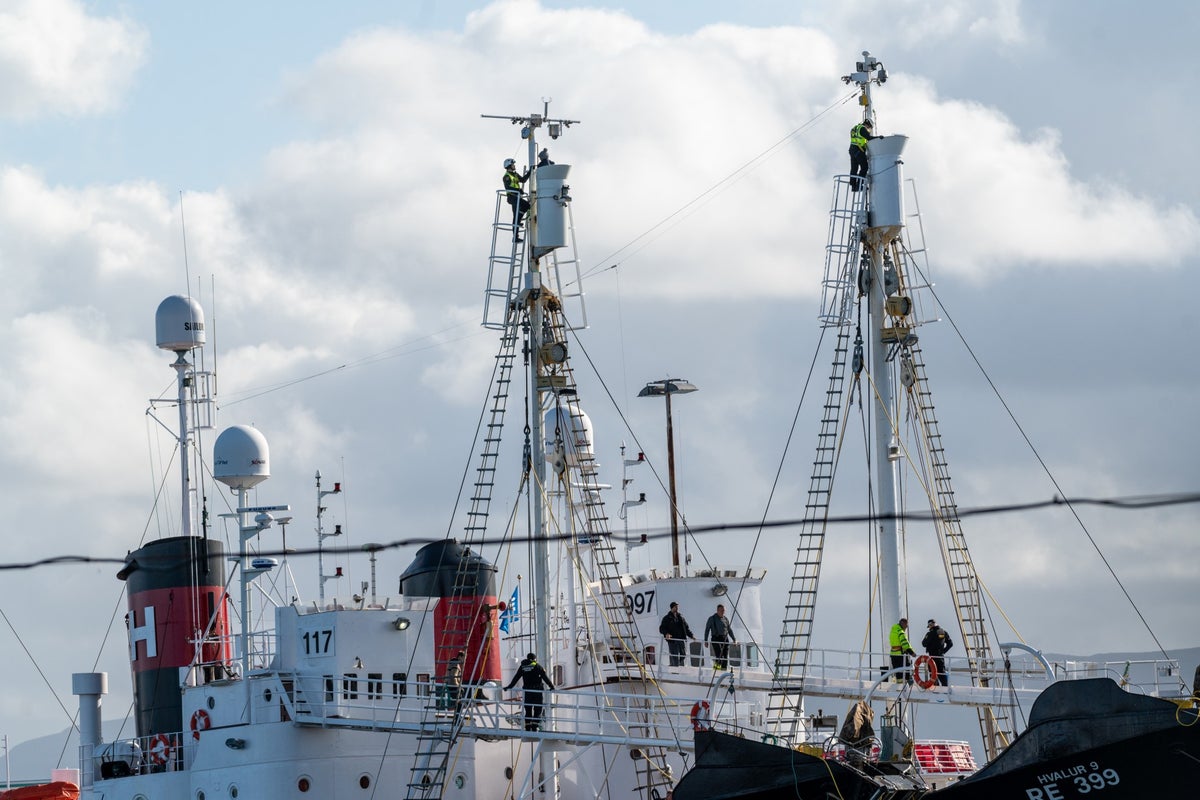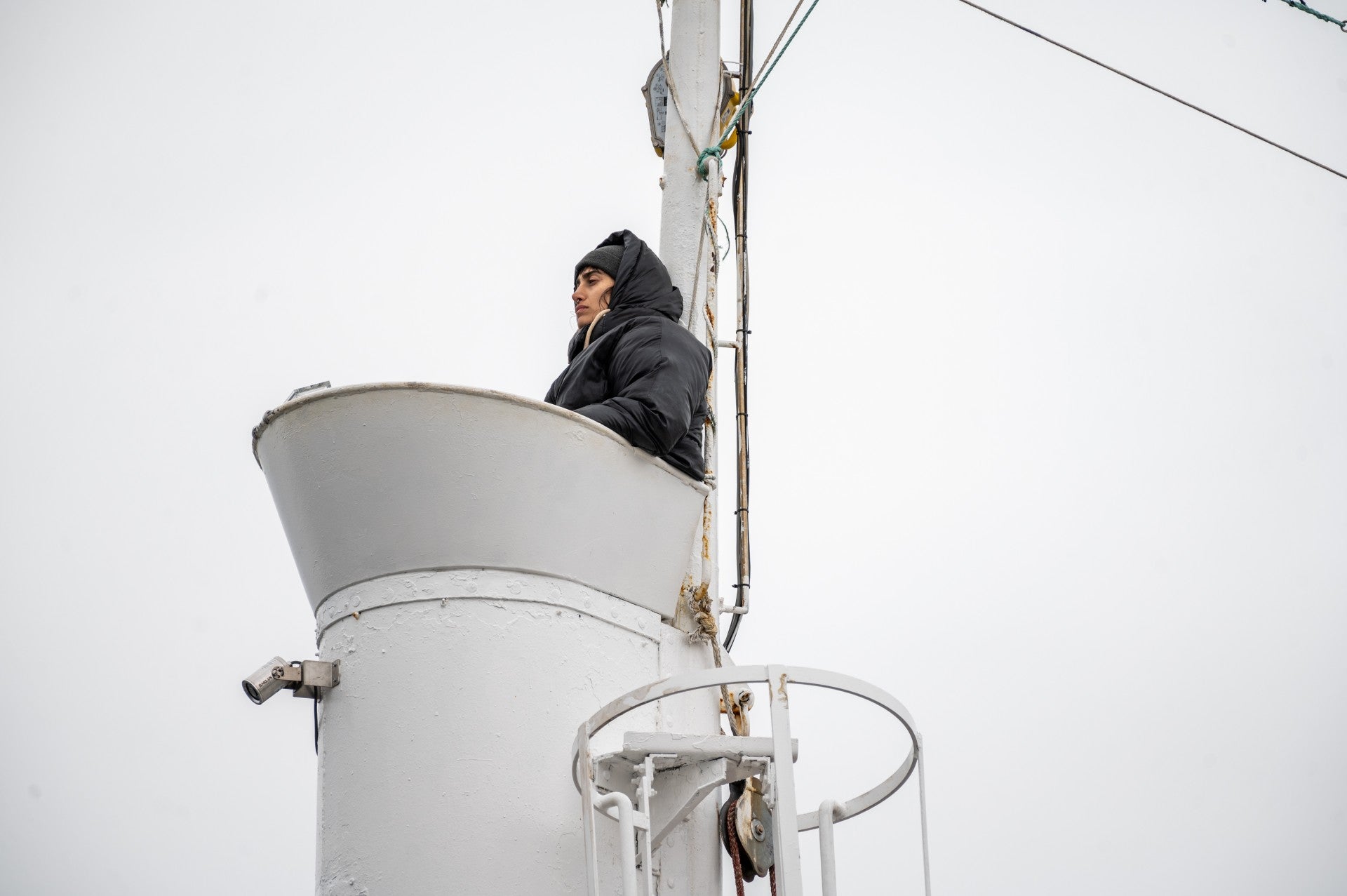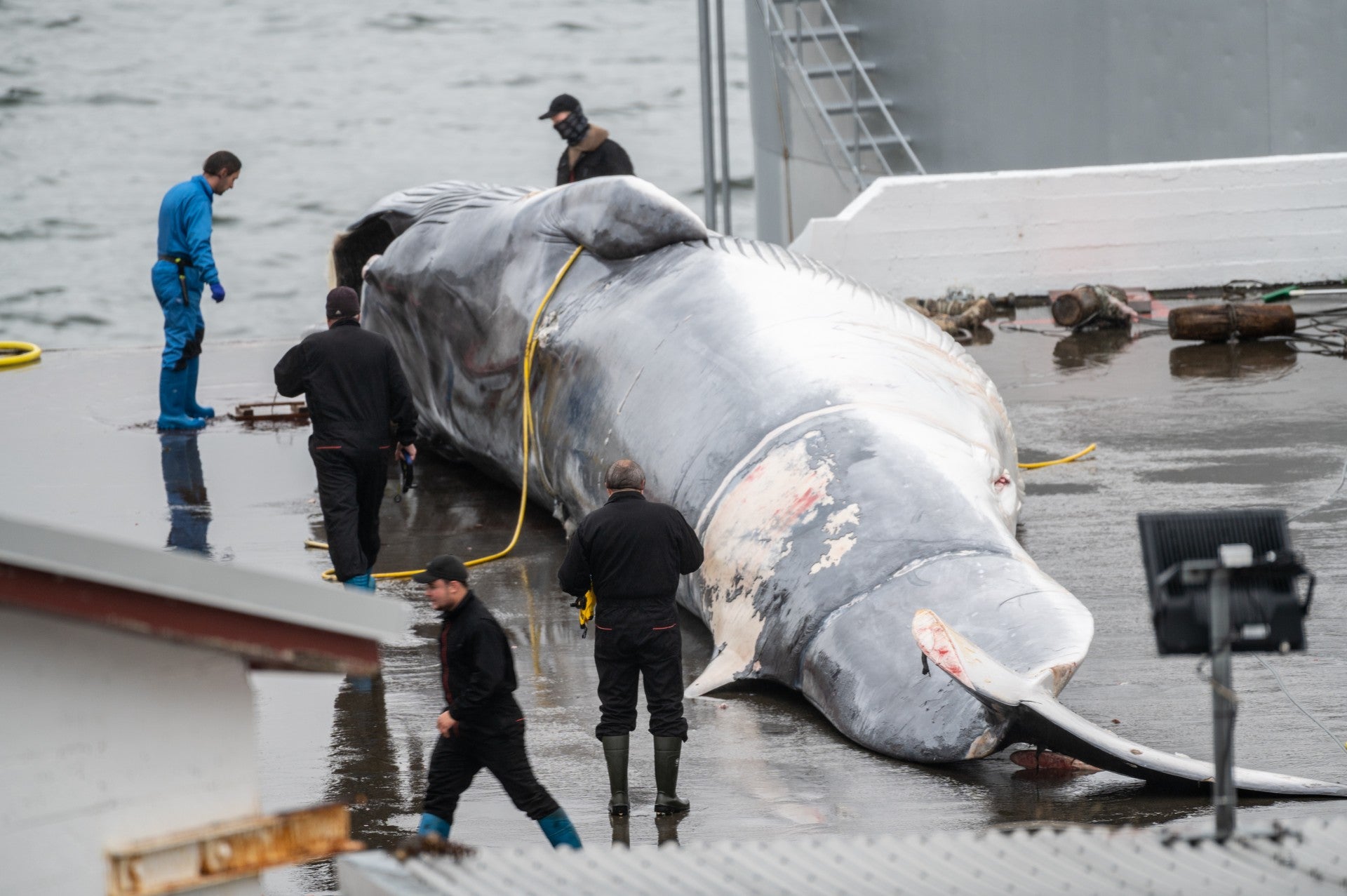
Two environmental activists are facing potential prison sentences after climbing onto the mast of a whaling boat and remaining there for 33 hours during a protest in Iceland.
Elyssia Phillips, a British woman from Lewes, and her close friend Anahita Babaei, who is Iranian, had been campaigning against the controversial practice of killing endangered fin whales.
Only three countries in the world defy the International Whaling Commission’s ban on commercial whaling, which sees the enormous sea creatures killed with explosive harpoons and has been a cause celebre for environmental movements for decades.
Since being released on bail following their arrest in September 2023, they have been charged with three criminal offences, which could see them spend six months in prison or pay a hefty fine.
Their lawyers, however, argue they are being made an example of as Icelandic police aim to crack down on civilian protests, in the wake of several anti-whaling and anti-fishery movements that have gained traction in the Nordic country.

Speaking to The Independent, Ms Phillips, 36, said that she and Ms Babaei, also 36, had travelled to the port to board two vessels owned by the company Hvalur hf, the country’s last whaling company.
“It is civil disobedience, we didn’t hurt anybody or damage anything,” she said. “It is us peacefully sitting up there saying we didn’t want the whales to be murdered.”
A report by Iceland’s Food and Veterinary Authority last year found that using the harpoons to kill the large animals was taking too long, with some whales taking two hours to die after being hit several times by the devices.
After remaining up on the 15m-high masts for 33 hours, in which they claim the Reykjavik police took Ms Babaei’s bag of food and medical supplies, they returned to ground level and were arrested and taken into custody.
They also claim that they were “manhandled” during the process of their arrests, despite complying with police orders and allowing themselves to be led to police vans.
Their lawyer, Linda Emilsdottir of the law firm Rettur, said: “It’s part of the anti-whaling campaign, but it’s also a bigger sense that we feel the police are pushing cases against protesters in Iceland.

“Maybe that’s because there are a lot of protests now, such as anti-whaling and fish farming, but also against immigration law and Israel-Palestine and so on.
“They’ve been investigating for two years now and have now decided to take it to court, but we don’t really see why. It was just a peaceful protest, and although they went up the mast on the ship, they didn’t cause any damage; it’s part of a political conversation, it was peaceful.”
Their legal team has now applied to have the case dismissed, after the pair were charged with trespass and entering, breaking maritime law and refusing to obey police commands.
“Based on the provisions, they could be facing jail time or more likely a fine depending on the charges, but they didn’t make any damage so there are no financial costs, there was no harm and the investigation has taken two years.”

As a result, the two women have been unable to apply for visas while they have waited in limbo to understand the outcome of the case, with Ms Babaei unable to visit her family in Iran and both struggling to travel for work.
Faced with the prospect of having to pay thousands in legal fees, they have now launched a GoFundMe to help fight their case.
Ms Emilsdottir added: “A primary concern is that the prosecution has brought forward three separate charges, none of which can be justifiably linked to the conduct in question. The indictment lacks sufficient reasoning or evidentiary support in both its text and the accompanying case files.
“Furthermore, the defendants’ actions, which consisted of a peaceful protest, caused no harm, did not breach public order, nor did they pose any threat to public safety. The initiation of criminal proceedings appears to be motivated not by the pursuit of justice, but by an intent to implement a punitive stance against individuals engaging in protest.
“It is also of serious concern that the case has remained under prolonged police investigation. Despite efforts to expedite the process, the investigation has been unnecessarily delayed. The mere status of being under prolonged criminal investigation imposes a significant burden on the accused and effectively constitutes a form of punishment.”
They have now had to return to Iceland for court hearings, and are due to face trial in front of a judge in January 2026.
The Foreign Office said it has not been approached for consular assistance but is ready to support. The Icelandic police have also been contacted for comment.
Greenland and Iceland saw record heat in May. What does that mean for the world?
Daughter of accused Gilgo Beach killer believes her father ‘most likely’ did it, new film says
Israel says it will stop aid boat carrying Greta Thunberg from reaching Gaza
As Israeli bulldozers demolish their homes, West Bank Palestinians are losing hope
Ukraine war latest: US warned military aid cuts to Kyiv ‘will create more casualties’
The Latest: Federal appeals court to hear arguments in Trump’s bid to erase hush money conviction







